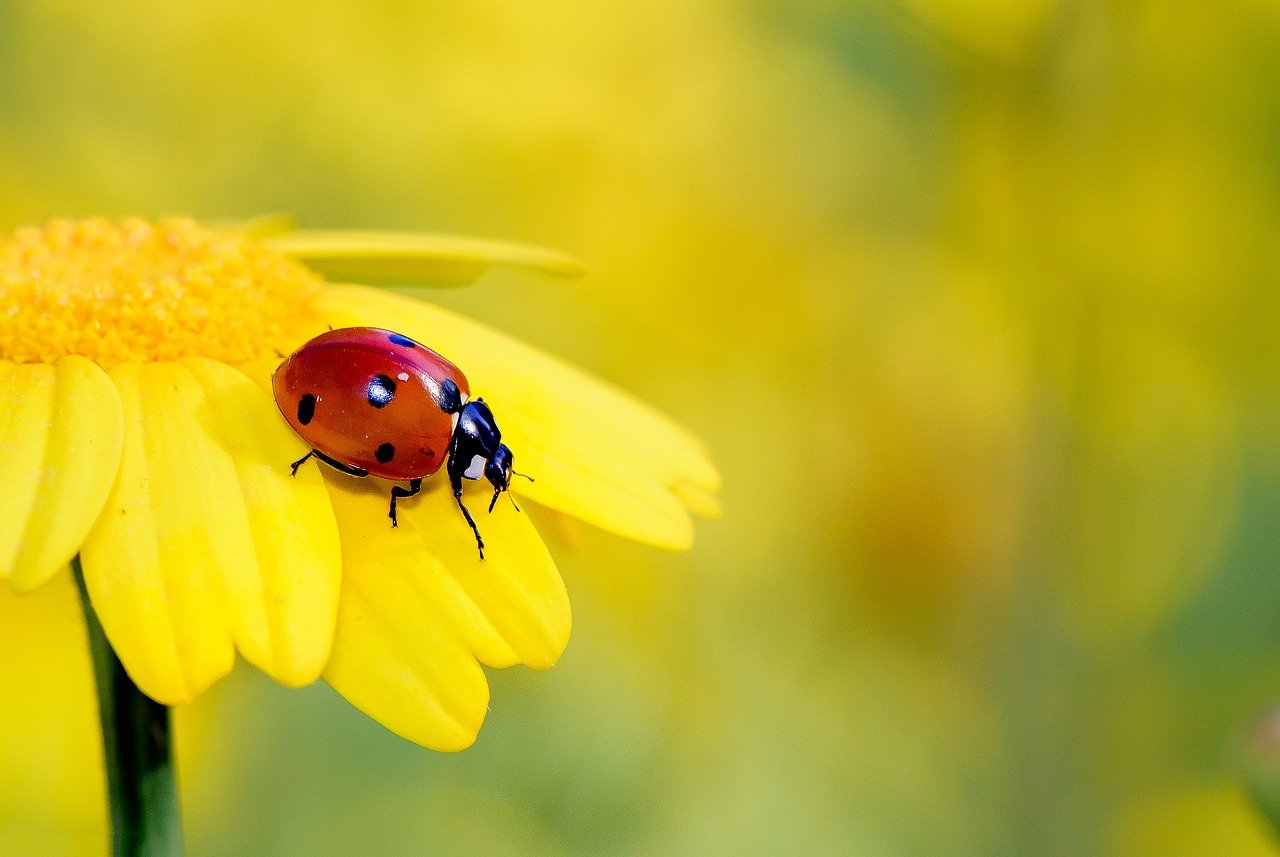Garden Guardians

“The angel of the Lord encamps all around those who fear Him, and delivers them.” [Psalm 34:7]
Ladybugs are one of the most valuable natural forms of pest control on Earth. Farmers of the Middle Ages believed that the ladybug could work miracles for their crops, so they named the little beetle “Our Lady” or the “Bug of Our Lady,” after the Virgin Mary. Other names for the ladybug include ladybird, lady beetle, and lady fly, but over time this was shortened to the simple modern name, ladybug. (Naturally, not all ladybugs are ladies; there are boy ladybugs too.)
There are more than 4,000 different kinds of ladybugs in the world; 300 varieties live in North America. Besides the familiar red with black spots coloration, they also come in pink, white, brown, metallic blue, and yellow, and one beautiful species is black with red spots – exactly the opposite coloration of the common type.
These hardy little beetles beat their wings 85 times a second when flying and can live for weeks without eating, and when insects are scarce they can switch from eating insects to eating pollen. Another reason ladybugs survive so well is their ability to emit a foul-smelling and bittertasting chemical from their leg sockets when attacked by a predator. So birds generally avoid them. A female ladybug can lay up to 1,000 eggs in her lifetime. In winter, ladybugs gather in huge groups to hibernate under sticks, bark, and even rocks. In California, 750 million ladybugs were discovered hibernating together in one group.
Ladybugs have even ventured into space. In 1999, four ladybugs were sent into space as part of an experiment on NASA’s space shuttle. Upon completion of the mission, it was determined that the ladybugs survived very well in space and even ate aphids while in zero gravity.
Because of ladybugs’ efficiency in the garden, farmers praise them for healthy crops. They are the good bugs that fight the bad bugs, eating billions and billions of aphids, scale insects, and mealy bugs every year. Gardeners even buy boxes of ladybugs to protect their gardens from pests.
Did you know the Bible teaches that God will send angels to protect those who trust in Him? Psalm 91 says, “For He shall give His angels charge over you, to keep you in all your ways” (verse 11). These heavenly guardians are sent by God to watch over and encourage us continuously.





